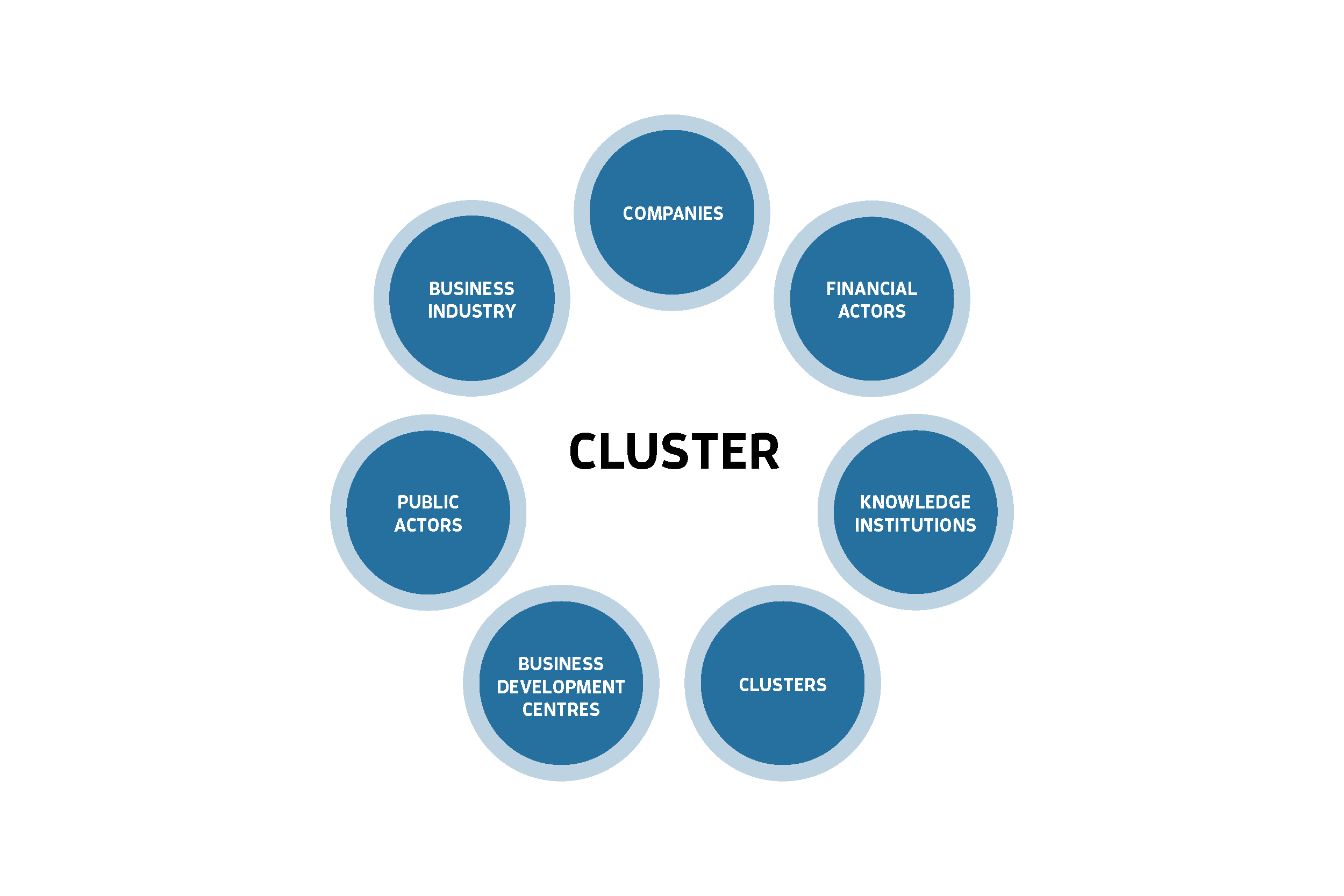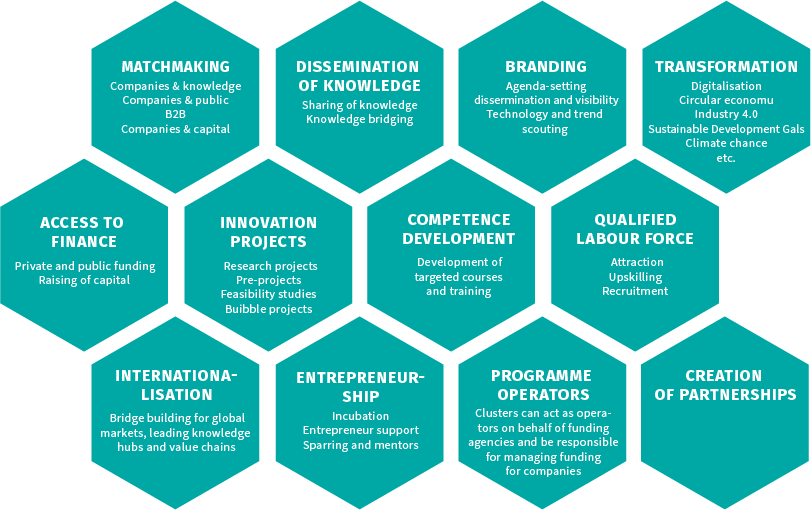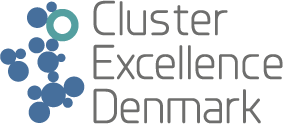Denmark’s 13 national clusters
What is a cluster?
The central role of clusters
The cluster organisation
Cluster history
Denmark’s 13 national clusters
What is a cluster?
The central role of clusters
The cluster organisation
Cluster history
The Danish clusters
The cluster organisation
The cluster organisation is the centre of the cluster activity. The cluster organisation facilitates the cooperation between the actors in the ecosystem and handles administration and strategy work as well as the activities and services which the cluster participants are seeking. In other words, the cluster organisation is the glue that ties all parties together.
The cluster organisations of the 13 national clusters receive funding from the cluster programme Innovation power: Danish clusters for knowledge and business 2021-2024.

Certification of cluster organisations
Excellent cluster management creates value. That is why the Danish cluster organisations are required to have (or obtain) a GOLD Label “Excel in Cluster Excellence” in the European Cluster Excellence Initiative (ECEI).
The European Cluster Excellence Initiative is established by the EU Commission and consists of three levels of assessment: gold, silver and bronze. With these different levels Danish cluster organisations can compare themselves with other cluster organisations around Europe.
Having a GOLD label means that the cluster organisation demonstrates excellent cluster management. The cluster has a strong organisation, relevant services and a close contact to companies and other actors – and not least it continually seeks to development the cluster organisation to a higher level.
Key tasks and activities
The primary task of clusters is to transform knowledge into growth. This is done by facilitating cooperation between companies and with research and knowledge environments and other actors in all of the ecosystem.
The power of innovation lies in the cluster organisations’ services and activities. Innovation is produced in the meeting between companies and knowledge.
Cluster organisations offer targeted services and activities – all with innovation, cooperation and growth as the focal point. Activities and services are adapted to the challenges of each stronghold.


Examples of cluster activities
- Green and circular transition via innovation projects between companies and universities
- Insight into the latest knowledge on trends and effecient tools via networking groups for companies
- Access to international knowledge and markets via partnerships, alliances and campaigns
See cases on the clusters’ own websites

